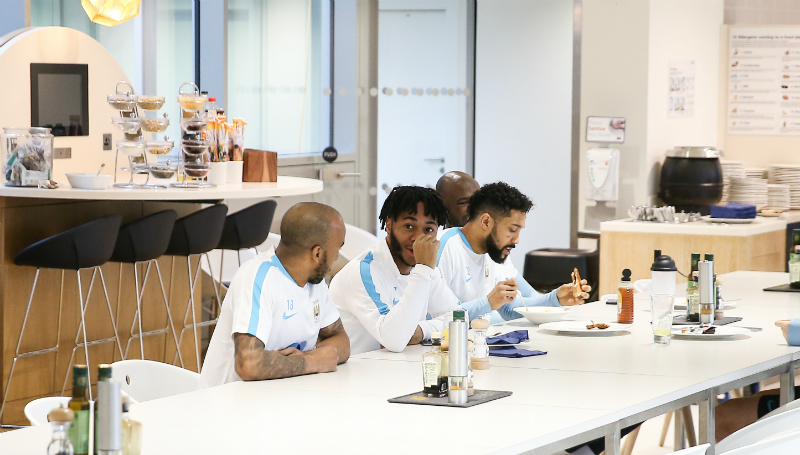How many carbs, protein and fat: How much should you eat?
FFT spoke to Science in Sport nutritionist Ted Munson to find out the perfect diet for professional and amateur footballers

How do the nutritional demands of football differ to other sports?
Football is a high intensity, intermittent sport and one of the big differences to other sports is you don’t have access to energy and food during a game. A cyclist can take on board energy gels and caffeine as they ride but you can’t do that on the pitch. The research at the moment is saying that our carbohydrate stores are depleted after 60 minutes of high intensity explosive exercise. As a general rule, half of a professional player’s diet should come from carbohydrates, 20-25% protein and 20-25% fat.
What happens if we don’t eat anything during a game?
If you don’t take on any carbohydrates, your stores will be completely depleted once you’ve reached 70 or 80 minutes. As soon as this happens you don’t have the energy to perform high intensity exercise. This is known as hitting the wall. During endurance exercise – long distance running and cycling - this happens around the 90-minute mark.
How many carbohydrates should a player be consuming before a game?
Your muscles can store about 300g of carbohydrates. You can load the muscles the night before a game. However, these will be used largely in the first 45 minutes. Pre-game you should be having lots of spaghetti, rice or pasta. I’d avoid eating too much protein before a game, as it can take longer to digest. After your warm up I’d recommend an energy gel with about 22g of carbohydrates to make sure your stores are 100% full at kick-off.
Related story: Eat, drink and sleep like a footballer
Get FourFourTwo Newsletter
The best features, fun and footballing quizzes, straight to your inbox every week.
What basic nutritional mistakes do players often make?
Definitely carbohydrate intake. That’s the massive one. There’s a lot of talk in the media at the moment about restricting carbohydrate intake to lose weight. But at an amateur and elite level, this has a detrimental effect on performance. If you’re playing football, I’d recommend 7-10g of carbohydrate per kg of body weight the day before and the day after a game.
Should a player change his diet on a rest day?
I’m not a believer in restricting calories or carbohydrates on a rest day. At a lot of football clubs, they will have two days off, on a Wednesday or a Sunday. The day after a game I’d still recommend eating a lot of carbohydrates to make sure your glycogen stores are fuelled again for training the following day. The same goes for protein, you need regular servings of protein to make sure your muscles recover as quickly as possible.
Related story: Eat for every occasion
How much protein should players be eating?
The general rule is that the bigger you are the more protein you should eat. I would say 20-25g of protein every 3-4 hours is optimal to maintain muscle mass. Post game, some players struggle to digest anything more than 20-25g of protein. If you’re eating more than that your body won’t digest it and the body will just flush it out. After training or a game, you have a 30-minute window to maximise muscle recovery – this is the best time to consume protein.
What type of protein would you recommend?
You should be consuming fast digesting protein – for example whey protein. There are other types – casein and milk protein and they’re slow digesting. We have a protein which Liverpool use that they’ll have about half an hour before they go to bed. That will secrete about 3-4g of protein into the body while they’re sleeping. That’s ideal to repair muscle that has broken down during a game, training or gym session.
